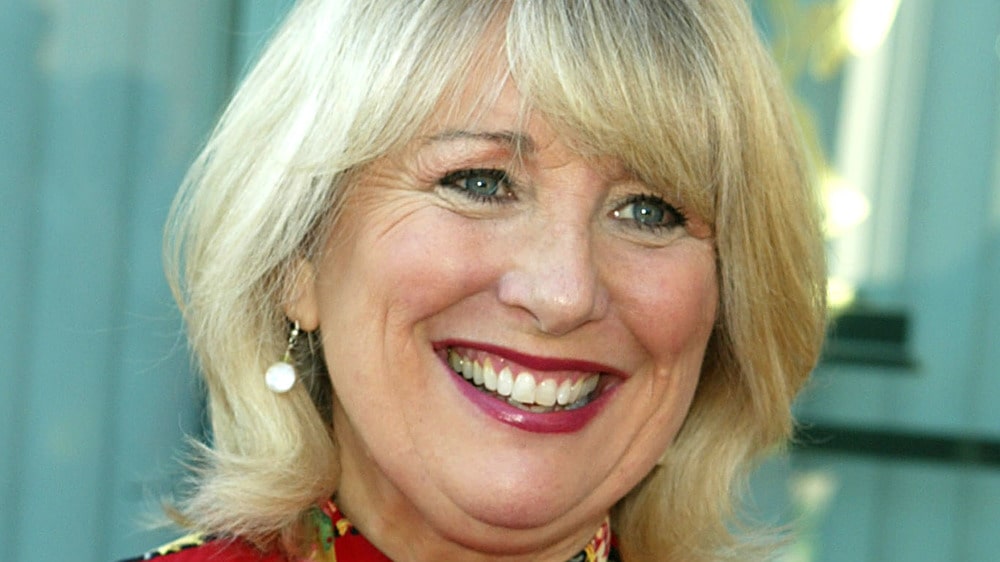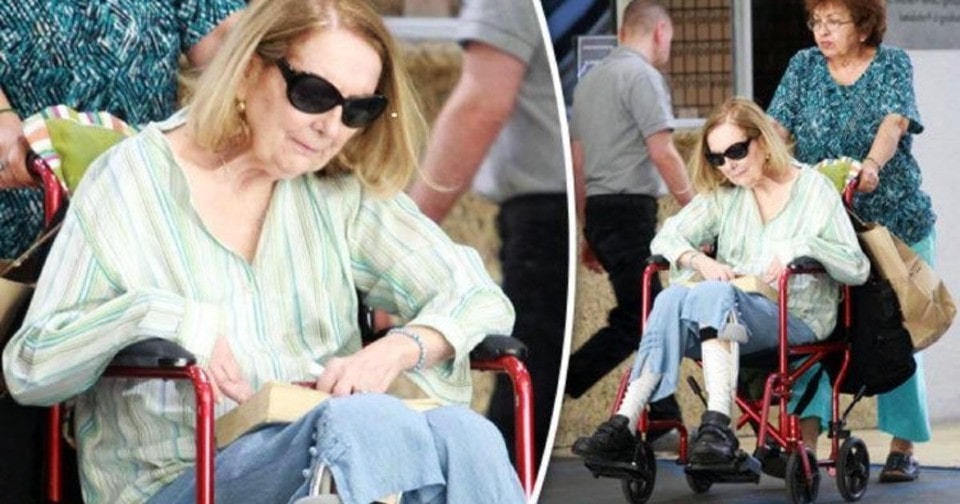Teri Garr was Taken to Hospital for a “Medical Emergency”
A packed club on Manhattan’s Lower East Side hosts “urban storytelling” on a cold December night. Five actors have recounted their LA lives onstage. Teri Garr makes folks laugh on the small stage. She describes how she avenged a cheating ex-boyfriend in sleek black with her signature blonde hair (Hint: it involved a hammer and all the windows of his house).
Getting on stage was harder than the humor. Garr initially noticed multiple sclerosis symptoms about 20 years ago (MS). She now has right-sided weakness and a limp, making stairs and stages difficult. Like many MS patients, it took years to figure out what was causing her odd symptoms.

“Since 1983. In New York, I’d trip while jogging in Central Park “said. “Running and heating up made me weaker. It disappeared for ten years. I started having acute arm pains when I ran again. I figured I was being stabbed in Central Park.”
Garr saw several specialists, including an orthopedist who recommended surgery for a pinched nerve. She declined. “Every movie I did, I’d go see a different doctor in the place where we were shooting,” she explains. “Occasionally someone would mention MS, but someone else would think it was something else.”
Garr was diagnosed with MS in 1999 after her symptoms fluctuated.
“It’s a narrative that many other people with the sickness know,” says Garr.
“Every time I relate my experience, the audience nods and says ‘Uh-huh, yep, that happened to me.’”
Garr revealed her ailment on “Larry King Life” in 2002. By then, the limp was obvious and many in Hollywood had diagnosed MS, placing her in the “actress protection program,” according to King.
After acting in more than 100 films and TV shows, earning an Oscar nomination for best-supporting actress in Tootsie, and gaining a strong and passionate fan base for roles like Inga in Young Frankenstein (“I love to roll in ze hay!!”) and Caroline in Mr. Mom, she found that the work had dried up.
“Hollywood’s perfectionist nature would have changed my career anyway. When things slowed down, it was either MS or I’m a bad actress, so I chose MS “said. “There’s fear and misinformation out there regarding MS, and that’s why it’s so essential to me to go out and talk about it.”

The hyperactive actress has had to cut back on her excessive multitasking because living with MS requires prioritizing and simplifying. “I hate slowing down, but I must. MS suffers from stress, anxiety, and high tension “said. “Emotional involvement is bad. I can’t handle too much noise, choices, or goods in a department shop.”
Her three-times-a-week Pilates workout helps. “It definitely strengthens the muscles,” she explains. “I must also “Simplify, simplify” as Thoreau said. I’ve learned to focus.”
That hard? Yes, but less than expected. “I’m glad I had to give up many things. Nowadays, everyone overdoes it. I’m happier doing three things a day instead of eight “”Garr” Most of those three things involve her 11-year-old daughter Molly. “I give her my best time and energy.”
Molly’s mother has MS. “She knows my good and bad days. She’s gotten acclimated to it since I started having more symptoms at eight “Garr believes her daughter has learned from MS. “She’s friendly and loves life. She’s caring. She calls me a Supermom and doesn’t treat me differently.”
Garr’s varied pursuits support her daughter’s opinion. In September, Garr will release a book in addition to parenting Molly, touring the country to increase MS awareness, and appearing in projects from the urban story-telling program to occasional TV series (she appeared on “Life with Bonnie” in 2003). Penguin will publish Garr’s book, titled Does This Wheelchair Make Me Look Fat (even though she doesn’t use one), which will humorously cover her life, from Hollywood to MS. Garr believes the book’s core is “identity. Who are you when you’re sick? It’s right in front of you, forcing you to discover who you are and what matters.”
Garr thinks MS has two responses. “I immediately thought, “Look at the trees, look at life, look at how amazing it is.” I think it’s best “said. “‘I’m struck, I’m hit, I’m down, I’m out, it’s over’ is another reaction.” She rarely has those moments. “Always fiery. “Come back here!” if you hit me in the jaw. I’ve always fought.”
Garr laughs at her disease. “I have a small bit of MS,” she recalls, recalling Dustin Hoffman’s response: “I’m sure this has something to do with sex.”
She admits her positivity confuses some. “Some seek to upset you. I’m OK, not upset. Being depressed doesn’t help you “said. “It could be my showbiz background. You’re always told you’re too short, ugly, or whatever. But I’m smart, talented, this, that! I’ve always done it, even with MS.”

She calls it “the balonya”—creative disability management. Garr told Neurology She wasn’t sure how to spell the word. In one of her early jobs as a dancer in a 1960s beach party movie, Garr heard the director say they needed someone to do a stunt dive for double the day. She offered to dive for extra cash. “Balonya. Only once, however “remarked. Director agreed.
“I earn $200 for this crazy dive with a meaningless name. I remember this anytime I do something I thought I couldn’t. I contemplate it daily “”Garr” “I no longer get $200 for chin-opening a jar. But when I’m walking down the street and come to a stairwell and wonder whether to turn back or climb, I think about the balonya. I feel great after a difficult task.”
She has learned that how you feel about yourself is unrelated to your impairment by speaking out about the condition across the country. “I met a cerebral palsy/MS woman in North Carolina. She’s wheelchair-bound and everyone’s talking to her “Garr. “Because she’s so upbeat, hilarious, and full of life, she was the party’s favorite. Your attitude matters with any sickness, but especially one like mine that moves about and can come back.”
Garr’s MS isn’t easy. “I’ve always been independent, but you have to ask for support. That’s tough “said. “Letting others open doors and carry baggage takes practice. That sacrifice will provide me more energy for something more important. It’s hard to relinquish control.”
She always tells MS patients who come to her speaking engagements that there’s hope. “”Are you on medicine?” is my first question to visitors. You’re strong, you’re walking, and you want to maintain it that way. We have new treatments, “said. “Self-advocate.”




